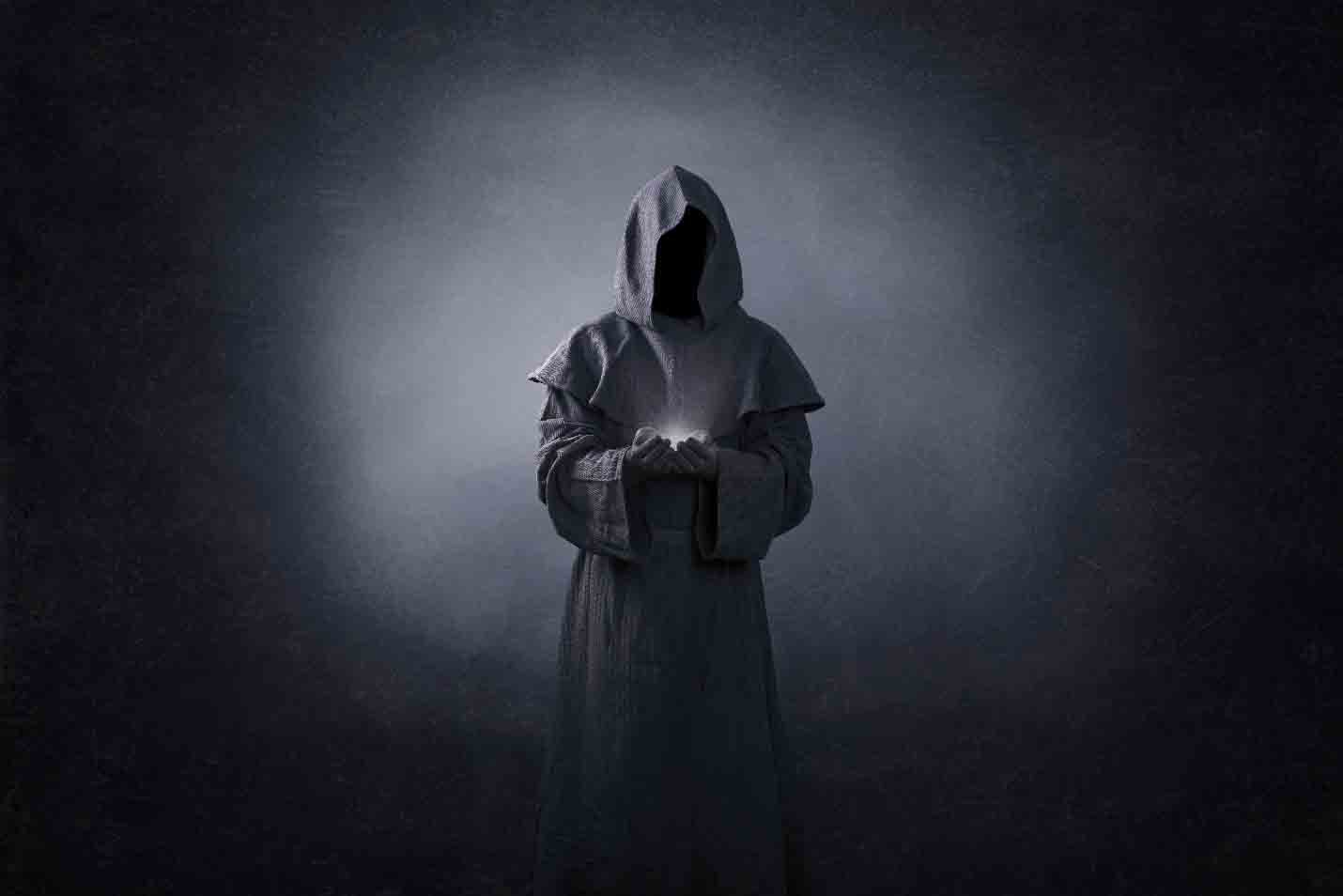So, listen up, folks. We’re diving headfirst into one of the most talked-about topics in history—the antichrist. It’s a concept that’s been debated, feared, and misunderstood for centuries. Whether you’re religious, spiritual, or just plain curious, this topic is bound to spark some serious thoughts. So grab your favorite snack, sit back, and let’s unravel the mystery together, shall we?
Now, the term "antichrist" might sound like something out of a horror movie or a religious thriller, but it’s way more complex than that. It’s not just about good versus evil; it’s about understanding the cultural, historical, and theological significance behind it. So, why does this topic matter? Well, because it’s been a part of human consciousness for so long that ignoring it would be like skipping the last chapter of a gripping novel.
And hey, before you think this is all doom and gloom, let’s be clear—this article isn’t here to scare you. It’s here to inform, educate, and maybe even entertain. By the time you’re done reading, you’ll have a clearer picture of what the antichrist really means and how it fits into the grand scheme of things. Sound good? Let’s get started.
Here’s a quick guide to help you navigate this deep dive:
- What is the Antichrist?
- Biblical Origins of the Antichrist
- Historical Perspectives on the Antichrist
- Common Misconceptions About the Antichrist
- Modern-Day Interpretations
- The Antichrist in Pop Culture
- Religious Views on the Antichrist
- Is the Antichrist Real?
- The Antichrist and the Apocalypse
- Final Thoughts
What is the Antichrist?
Alright, let’s start with the basics. What exactly is the antichrist? In simple terms, the antichrist is a figure often associated with opposing or imitating Christ. The word itself comes from the Greek "antichristos," which means "against Christ" or "in place of Christ." But hold up—this doesn’t mean the antichrist is just some random villain. Nope, it’s deeper than that.
Think of the antichrist as a symbol of opposition to everything that Christ represents—love, truth, and righteousness. Some see it as a person, while others view it as a system or ideology. The key here is that the antichrist challenges the core values of Christianity, making it a central figure in apocalyptic narratives.
And here’s the kicker—there’s no one-size-fits-all definition. Different cultures, religions, and scholars have their own take on what the antichrist truly is. So, buckle up because we’re about to explore some of these perspectives in the next sections.
Biblical Origins of the Antichrist
The First Mentions
Let’s rewind to the source—yes, the Bible. The concept of the antichrist first appears in the New Testament, specifically in the letters of John. In 1 John 2:18, John writes, "Children, it is the last hour; and as you have heard that antichrist is coming, so now many antichrists have come." Boom. There it is—the first mention.
But wait, it gets even more interesting. John doesn’t just talk about one antichrist; he mentions "many antichrists." This suggests that the antichrist isn’t necessarily a single person but could also represent a broader movement or mindset. Mind blown yet?
Revelation and the Beast
Fast forward to the Book of Revelation, and we meet the infamous "beast." Many scholars associate this beast with the antichrist. Revelation 13 describes a beast rising from the sea with seven heads and ten horns—sounds like a scene straight out of a fantasy novel, right?
This beast is said to deceive the world and lead people away from God. Some interpret this as a literal figure, while others see it as a metaphor for oppressive regimes or ideologies. Either way, it’s clear that the antichrist plays a significant role in the end-times narrative.
Historical Perspectives on the Antichrist
Now, let’s take a trip down memory lane. Throughout history, people have speculated about who or what the antichrist might be. From ancient emperors to modern-day leaders, the antichrist label has been slapped on quite a few characters.
For example, during the early Christian era, some saw the Roman Emperor Nero as the antichrist. Why? Because he persecuted Christians and claimed divine authority. Fast forward to the Middle Ages, and figures like Muhammad and the Pope were accused of being the antichrist by certain groups. Yeah, things got wild back then.
And let’s not forget the 20th century, where figures like Adolf Hitler and Joseph Stalin were often labeled as potential antichrists. The point is, the antichrist has always been a reflection of the fears and anxieties of the time.
Common Misconceptions About the Antichrist
Okay, here’s where things get tricky. Over the years, a lot of myths and misconceptions about the antichrist have popped up. Let’s clear the air on a few of them:
- The Antichrist is Satan: Nope. While the antichrist is often associated with evil, it’s not the same as Satan. Think of the antichrist as more of a puppet or a tool used by Satan.
- The Antichrist is a Single Person: Not necessarily. As we’ve seen, the antichrist can also represent a system, ideology, or even a mindset.
- The Antichrist Will Be Obvious: Wrong again. Many believe the antichrist will be charming, persuasive, and even charismatic, making it hard to identify.
See? Not everything you’ve heard is true. It’s important to separate fact from fiction when discussing such a complex topic.
Modern-Day Interpretations
Globalization and Technology
In today’s world, the antichrist is often linked to globalization, technology, and even artificial intelligence. Some argue that these forces are creating a new kind of antichrist—one that controls and manipulates on a global scale.
Think about it. With the rise of social media, surveillance, and data collection, it’s easy to see how people might feel like they’re losing their freedom and privacy. Could this be a sign of the antichrist at work? Maybe. Or maybe not. Who knows?
Political Figures
And let’s not ignore the political arena. In recent years, several world leaders have been accused of being the antichrist. Whether it’s due to their policies, actions, or rhetoric, the antichrist label seems to stick to those who challenge traditional values and beliefs.
But here’s the thing—labeling someone as the antichrist without evidence is not only unfair but also dangerous. It’s important to approach these claims with caution and critical thinking.
The Antichrist in Pop Culture
Let’s talk about the fun stuff—pop culture. The antichrist has been a popular theme in movies, books, and music for decades. From "The Omen" to "Left Behind," the antichrist has been portrayed in countless ways.
And let’s not forget music. Bands like Metallica and Black Sabbath have explored the darker side of the antichrist in their lyrics. Even modern artists like Kendrick Lamar and Kanye West have touched on the topic in their music.
Why is the antichrist so appealing in pop culture? Because it taps into our deepest fears and fascinations. It’s a reminder that the line between good and evil is often blurred, and that’s what makes it so intriguing.
Religious Views on the Antichrist
Christianity
In Christianity, the antichrist is often seen as a central figure in the end-times prophecy. Different denominations have their own interpretations, but the general idea is that the antichrist will rise to power before Christ’s second coming.
Some Christians believe that the antichrist will perform miracles and deceive many, while others see it as a test of faith. Either way, the antichrist is viewed as a warning to remain vigilant and faithful.
Other Religions
Interestingly, other religions also have their own versions of the antichrist. In Islam, for example, the Dajjal is a figure similar to the antichrist. He is said to appear before the Day of Judgment and lead people astray.
Hinduism, Buddhism, and Judaism also have their own apocalyptic narratives, though they may not use the term "antichrist." The common theme across these religions is the idea of a final battle between good and evil.
Is the Antichrist Real?
Now, here’s the million-dollar question—is the antichrist real? Well, that depends on who you ask. For some, it’s a literal figure who will appear at the end of days. For others, it’s a metaphor for the forces of evil that exist in the world today.
What we do know is that the idea of the antichrist has had a profound impact on human history. It’s shaped religious beliefs, inspired art and literature, and even influenced political decisions. Whether or not it’s real, the antichrist is undeniably a powerful concept.
The Antichrist and the Apocalypse
Finally, let’s talk about the big one—the apocalypse. In many apocalyptic narratives, the antichrist plays a key role in the events leading up to the end of the world. Some believe that the antichrist will bring about a period of great tribulation, while others see it as a necessary step towards ultimate salvation.
Regardless of your beliefs, it’s clear that the antichrist is deeply intertwined with the concept of the apocalypse. It’s a reminder that life is full of challenges and uncertainties, but also full of hope and possibility.
Final Thoughts
So, there you have it—a deep dive into the world of the antichrist. From its biblical origins to its modern-day interpretations, this topic is as fascinating as it is complex. Whether you believe in the antichrist or not, there’s no denying its impact on human history and culture.
And hey, don’t forget to share your thoughts in the comments below. Do you think the antichrist is real? Or is it just a metaphor for the struggles we face in life? Let’s keep the conversation going.
Thanks for joining me on this journey, folks. Until next time, stay curious, stay informed, and most importantly, stay chill. Peace out!


